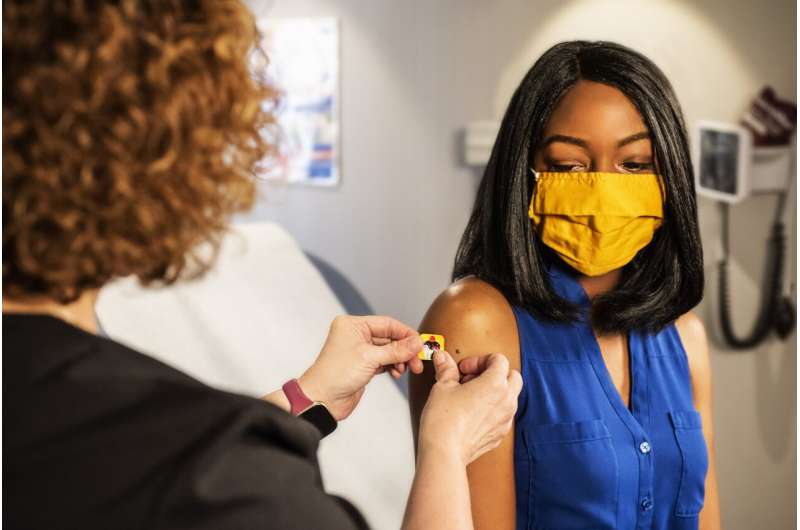Credit: Unsplash/CC0 Public Domain
The WHO said Wednesday that market forces alone cannot be allowed to determine which vaccines are developed and where they are produced, insisting jabs must be treated as a public good.
Vaccines against a number of illnesses save millions of lives every year.
But in a report on the global vaccine market, the World Health Organization highlighted that the largely profit-driven approach to how vaccines are developed, produced and distributed was leaving many without access to life-saving jabs.
"The hard-won gains of immunisation over the past two decades are at risk," WHO chief Tedros Adhanom Ghebreyesus warned in the introduction to the report.
"Far too many people around the world still do not have access to the vaccines they need, with nearly 20 million infants missing out each year."
Countries around the world agreed last year on the goal of ensuring sustainable access to a wide range of vaccines for all, in a bid to save 50 million lives by the end of this decade.
But to meet that challenge, there is a need for "a new paradigm", the WHO's vaccine chief Kate O'Brien said.
Speaking to reporters, she stressed "the importance of government engagement in setting the terms around which these life-saving public health goods are treated as such, as opposed to simply a profit-driven, market-driven commodity."
'Devastating'
Approximately 16 billion vaccine doses, worth $141 billion, were supplied in 2021—almost three times the 2019 market volume—with the increase driven mainly by the new COVID-19 vaccines, Wednesday's report said.
But investments lag or are absent when it comes to immunising against diseases associated with markets of little commercial value, it warned.
This is especially true for vaccines needed for emergencies, like cholera, typhoid, monkeypox and Ebola, where demand surges with outbreaks and is less predictable.
"The continued limited investment in these vaccines could be devastating for people's lives," WHO warned.
At the same time, a handful of manufacturers in a few countries account for the production of the most widely-used vaccines, often complicating procurement and access in poorer regions.
Wednesday's report called for public investments to ensure vaccine development and fair and equitable access to the jabs, regardless of the market interest.
It also called for investments in regional vaccine production hubs and other efforts to diversify the supply.
The UN health agency said the rapid development of jabs against COVID-19 had revealed ways to overcome some of the hurdles.
"The vaccine community made new vaccines available in less than one year," the report said, crediting "unprecedented public investment".
"This incredible achievement... made stark the long-standing need to reconsider the value of vaccines as a fundamental and cost-effective public good rather than a commodity."
Glaring inequities
The COVID-19 response served not only as a positive example though; it shone a light on the glaring inequities in access to the vaccines developed.
According to UN data, nearly three-quarters of people in high-income countries have so far received at least one COVID vaccine dose, but only a quarter have in low-income countries.
COVID-19 "highlighted inequities in (vaccine) access that are sadly the rule rather than the exception globally," Tedros said.
He pointed for instance to the new human papillomavirus vaccine, which protects against cervical cancer.
It "has been introduced in only 41 percent of lower-income countries, while it is saving lives in 83 percent of high-income countries," he said.
Wednesday's report suggested the global efforts to waive patent protections to speed up COVID vaccine production and distribution should be a model for other immunisation pushes as well.
There is a need, it said, to "work on a more favourable intellectual property landscape, proactive technology transfers and the building and retention of local technical and regulatory capacity."
© 2022 AFP
























